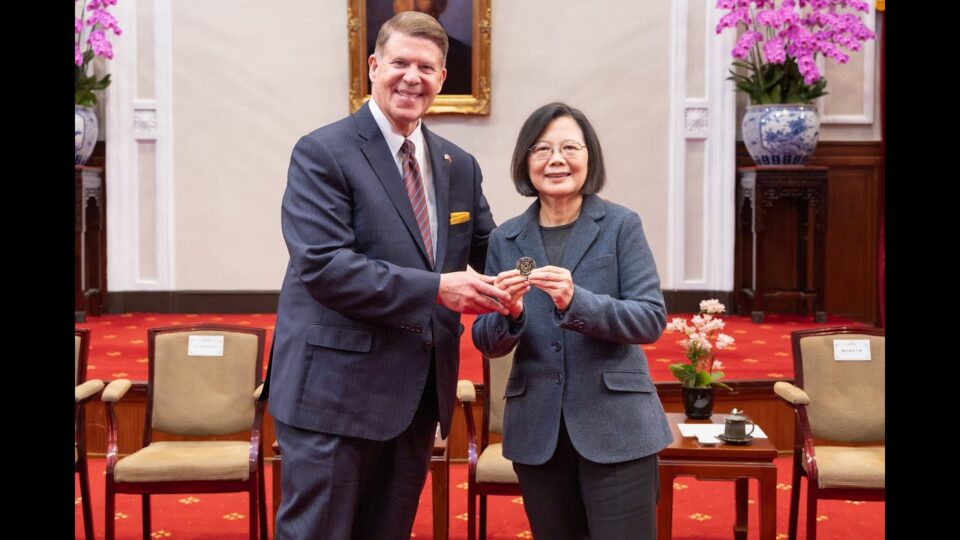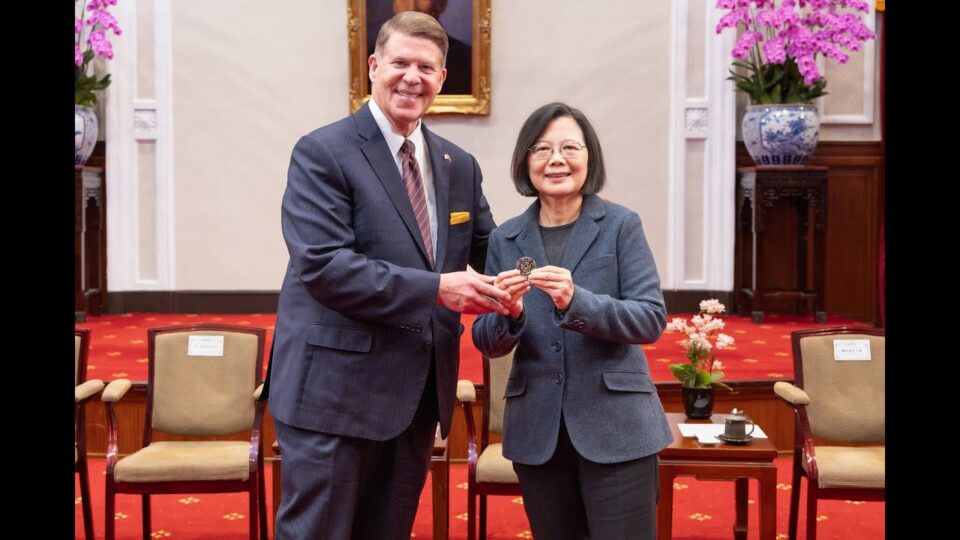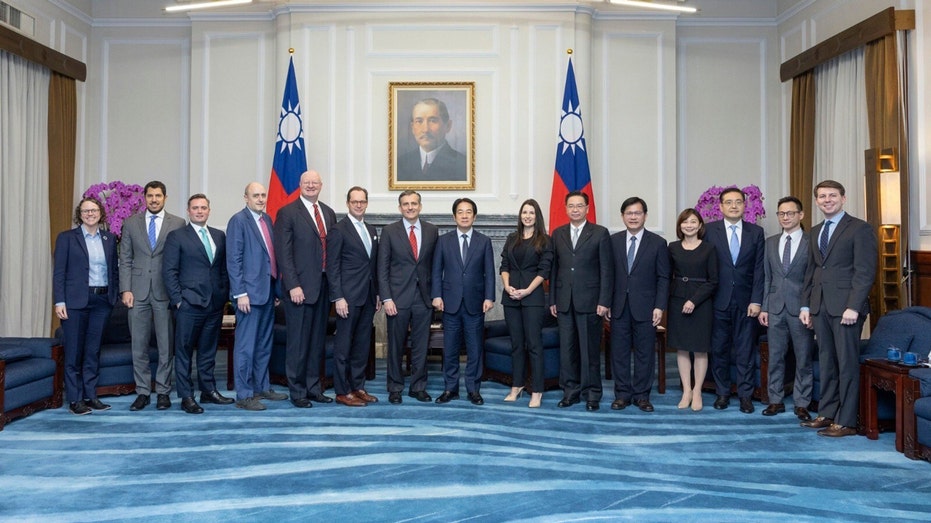
U.S. Urged to Deepen Ties with Taiwan Amid Rising Tensions with China
TAIPEI, Taiwan – Experts are advocating for the United States to strengthen both formal and informal relationships with Taiwan’s government and military, particularly as President-elect Donald Trump prepares for his second term. Analysts agree that while these initiatives could antagonize Beijing, they believe such measures are crucial for fostering clear communication and robust partnerships.
Strengthening Strategic Exchanges
As the geopolitical climate in the Asia-Pacific region continues to shift, strategic exchanges involving U.S. officials, scholars, think tanks, and various civil society groups have become increasingly important. These interactions are essential for enhancing mutual understanding between Washington, Taipei, and their respective populations.
Recently, a delegation from the Ronald Reagan Presidential Foundation and Institute traveled to Taiwan, where they engaged with key government officials, including President William Lai, Vice President Bi-khim Hsiao, and Foreign Minister Lin Chia-lung.
“We deeply appreciate the bipartisan support from our American friends and welcome delegations from the U.S. and like-minded nations,” Foreign Minister Lin told Fox News Digital. “These visits are tangible demonstrations of support for Taiwan and contribute to peace and stability in the Taiwan Strait, which are crucial for global security and economic prosperity.”
Highlighting Taiwan’s Diplomatic Importance
David Trulio, president and CEO of the Ronald Reagan Presidential Foundation and Institute, underscored the necessity of these connections. He described Taiwan as a vibrant democracy and a key economic partner of the United States. Visits from U.S. organizations and officials, he said, serve as opportunities to uphold shared values, tackle mutual challenges, and strengthen relationships.
The weeklong trip by the Reagan Foundation delegation included meetings with leaders from Taiwan’s three major political parties and various high-ranking officials. Despite over 70 years of separate governance, Taiwan, a self-governing island, remains at the center of rising tensions with Beijing, which continues to regard Taiwan as its territory.
China’s Claims and Taiwan’s Defense
Chinese President Xi Jinping recently reiterated in his 2024 New Year’s address that “reunification” with Taiwan is a “historical inevitability.” Beijing has made it clear that it does not rule out military action to achieve its ambitions. In response, Taiwan has taken decisive steps to bolster its defense capabilities. Foreign Minister Lin noted that Taiwan’s defense budget has surged over 80% since 2016, now projected to reach billion in 2024. By 2025, military expenditures, which include a special procurement budget, are expected to account for 20% of Taiwan’s annual central government budget, surpassing U.S. military spending as a share of government expenditure.
Public Support for Taiwan in the U.S.
The delegation’s visit marks the second to Taiwan by the Reagan Foundation in just two years. A recent poll conducted by the foundation revealed that 70-75% of Americans, across party lines, would support decisive U.S. actions if China were to attack Taiwan. A significant majority also expressed approval for the U.S. to recognize Taiwan as a sovereign nation immediately in such a scenario.
China’s Domestic Challenges
Despite its aggressive posturing, China finds itself grappling with a host of domestic challenges, placing it in a precarious position. Historically, the government’s fierce rhetoric and military demonstrations have not always translated into robust responses to U.S.-Taiwan interactions. For instance, after former House Speaker Nancy Pelosi visited Taiwan in 2022, China threatened “dire consequences,” but its subsequent actions were less severe than anticipated. Similarly, when then-President Tsai Ing-wen met with House Speaker Kevin McCarthy in California in 2023, the response was limited to military exercises simulating a blockade of Taiwan, showcasing no substantial new military capabilities.
The Call for Strength and Cooperation
“To preserve peace, we must be strong,” President Tsai proclaimed, echoing the sentiments of former U.S. President Ronald Reagan. In a similar vein, Liam Keen, a representative of the U.S.-based Formosan Association for Public Affairs, asserted that U.S.-Taiwan cooperation should not be dissuaded by China’s aggressive rhetoric. “China can and will huff and puff over visits,” Keen stated, adding, “but we cannot allow their theatrics to deter closer exchanges.”
Ongoing Collaboration and Mutual Benefits
The Taiwan government is eager to continue its collaboration with the U.S. administration on various fronts, particularly in defense and economic relations. “Taiwanese businesses, such as TSMC with its billion investment in Arizona, are increasingly solidifying their bonds with the U.S.,” Foreign Minister Lin emphasized. He reiterated the belief that “the more secure Taiwan is, the more secure the world will be.”
The High Stakes of Conflict
The potential fallout from a war over Taiwan would be catastrophic. Apart from staggering human losses, *Bloomberg Economics* estimates that the economic cost of such a conflict could reach trillion—nearly 10% of global GDP. This staggering figure far exceeds the combined impacts of the COVID-19 pandemic, the Ukraine war, and the 2008 global financial crisis.
Conclusion: A Call for Enhanced Engagement
Increased engagement between the U.S. and Taiwan, based on trust and unbiased communication, could serve as a significant counterweight to China’s aggressive aspirations. As the world watches closely, the importance of solidifying these ties is more pressing than ever, ensuring stability in the Asia-Pacific region while promoting democratic values and economic prosperity.


















